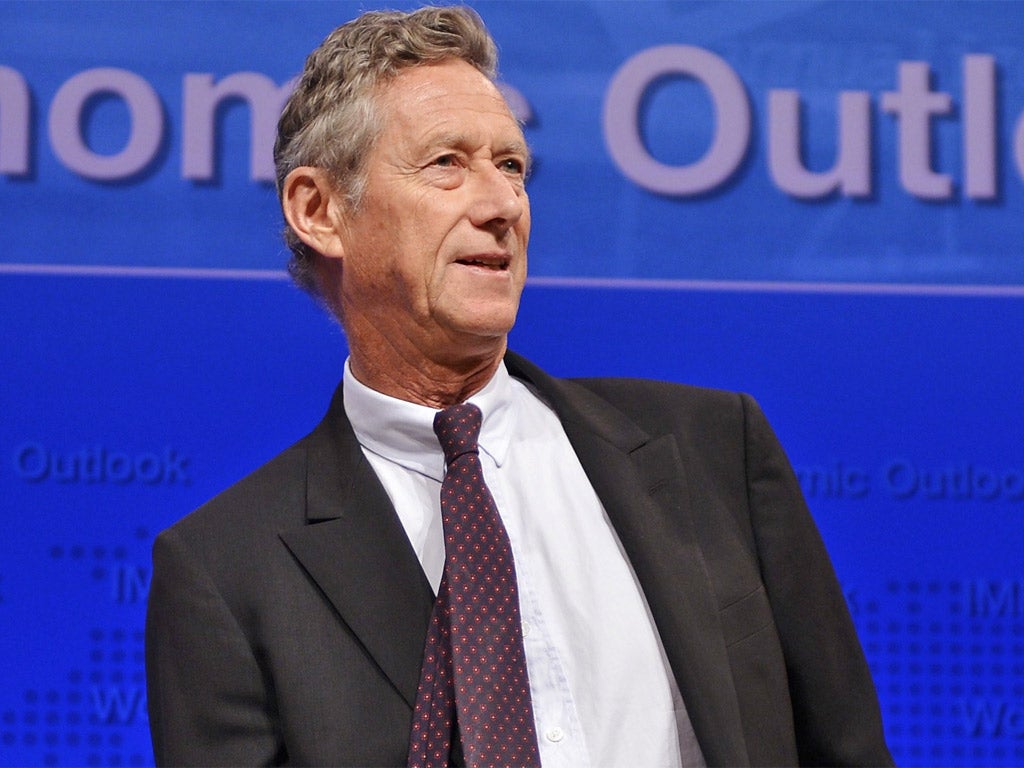Your support helps us to tell the story
From reproductive rights to climate change to Big Tech, The Independent is on the ground when the story is developing. Whether it's investigating the financials of Elon Musk's pro-Trump PAC or producing our latest documentary, 'The A Word', which shines a light on the American women fighting for reproductive rights, we know how important it is to parse out the facts from the messaging.
At such a critical moment in US history, we need reporters on the ground. Your donation allows us to keep sending journalists to speak to both sides of the story.
The Independent is trusted by Americans across the entire political spectrum. And unlike many other quality news outlets, we choose not to lock Americans out of our reporting and analysis with paywalls. We believe quality journalism should be available to everyone, paid for by those who can afford it.
Your support makes all the difference.The International Monetary Fund’s chief economist, Olivier Blanchard, has insisted that the debate about George Osborne’s economic strategy has not been settled despite the fund upgrading its growth forecast for the UK economy.
Mr Blanchard had warned in April that the Chancellor was “playing with fire” with his deficit-reduction timetable and the IMF itself embarrassed the Treasury the following month by urging Mr Osborne to slow the pace of spending cuts.
But since then the British economy has registered two consecutive quarters of growth and the IMF forecast that Britain’s GDP would expand by 1.4 per cent in 2013, up from its July estimate of 0.9 per cent. In 2014 the IMF now expects 1.9 per cent growth, up from 1.5 per cent predicted in July. The cumulative upgrade was the largest given to any advanced nation.
At a press conference in Washington to launch the IMF’s latest World Economic Outlook, Mr Blanchard admitted he had been “pleasantly surprised” by the UK’s performance over the past six months – yet he added that this did not mean he had been wrong to warn against the Chancellor’s strategy earlier in the year.
“I don’t think this has settled any of the debates,” he said. “This doesn’t tell us the pace [of fiscal consolidation] was right or not. It doesn’t tell us that growth could not have come back earlier.”
Mr Blanchard added that the IMF’s responsibility was to identify economic risks, including that of excessive austerity imposed by governments. “When we see a risk, we warn,” he said. “If that risk is avoided, all the better.”
Furthermore, the IMF pointed out in its report that, despite this year’s growth, the UK economy had still not made up the ground it lost in the 2008-09 recession. At the end of the second quarter of 2013, Britain’s GDP was still around 3 per cent smaller than it was five years earlier. The IMF also encouraged the Coalition to take advantage of interest rates that are still at historically low levels to bring forward public infrastructure expenditure projects to “offset the drag” from the Chancellor’s other spending cuts (albeit while sticking to the same strict budget envelope over the medium term). The shadow Chancellor, Ed Balls, seized on that latter argument to say that the Government should start building affordable homes.
“Instead of more complacency from George Osborne we need action to secure a strong and sustained recovery, catch up all the lost ground and tackle the cost-of-living crisis,” Mr Balls said.
However, a Treasury spokesman said that the IMF’s report was the latest confirmation that the UK economy was finally “turning a corner”. The spokesman added that the Government “will not let up in implementing its economic plan, which has already cut the deficit by a third, kept interest rates near record lows and created over a million and a quarter jobs”.

Join our commenting forum
Join thought-provoking conversations, follow other Independent readers and see their replies
Comments